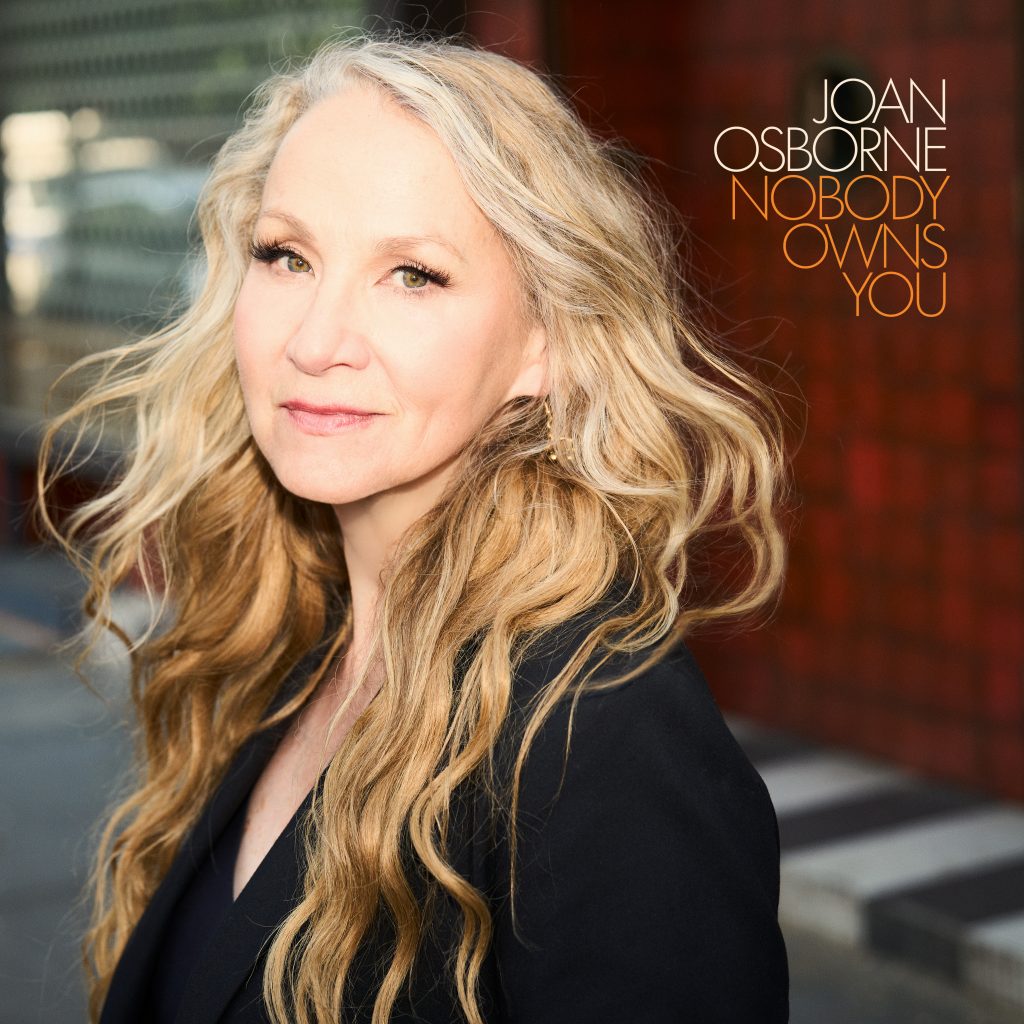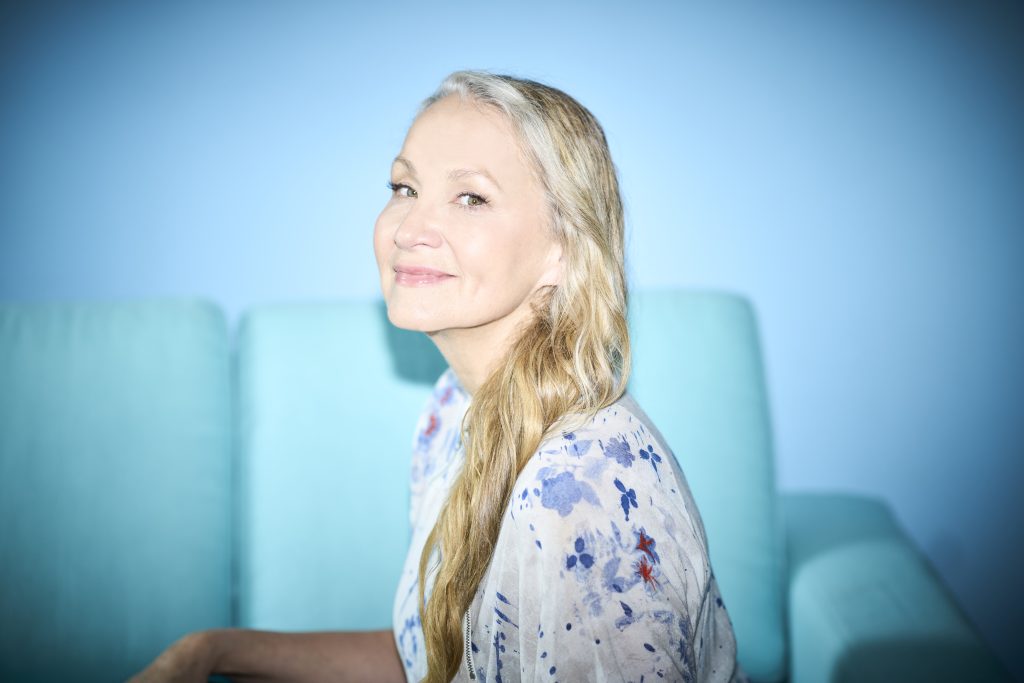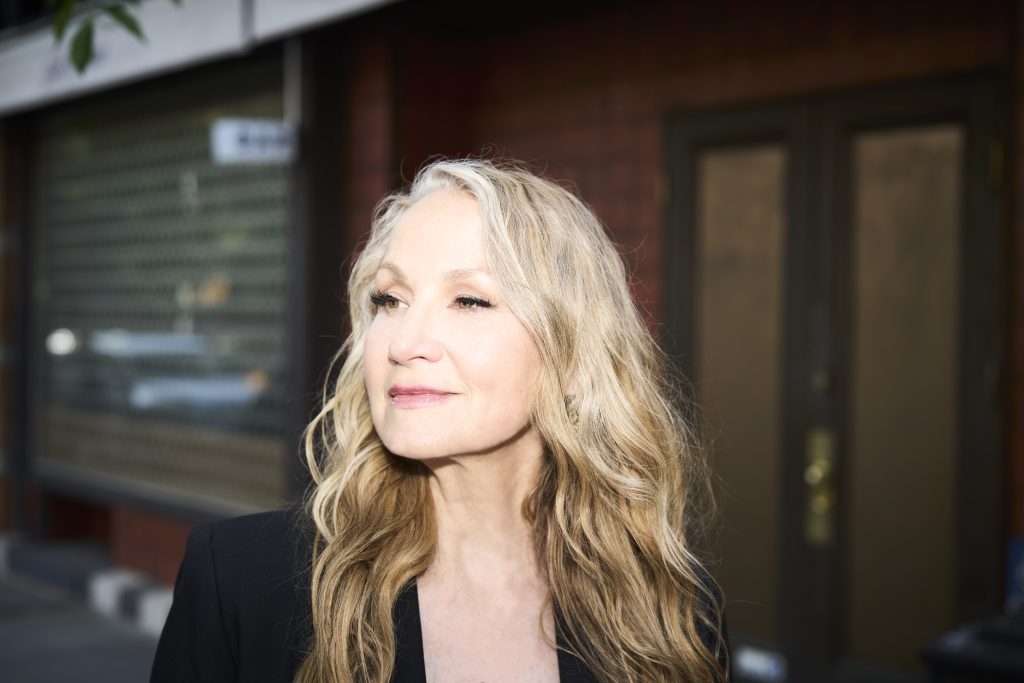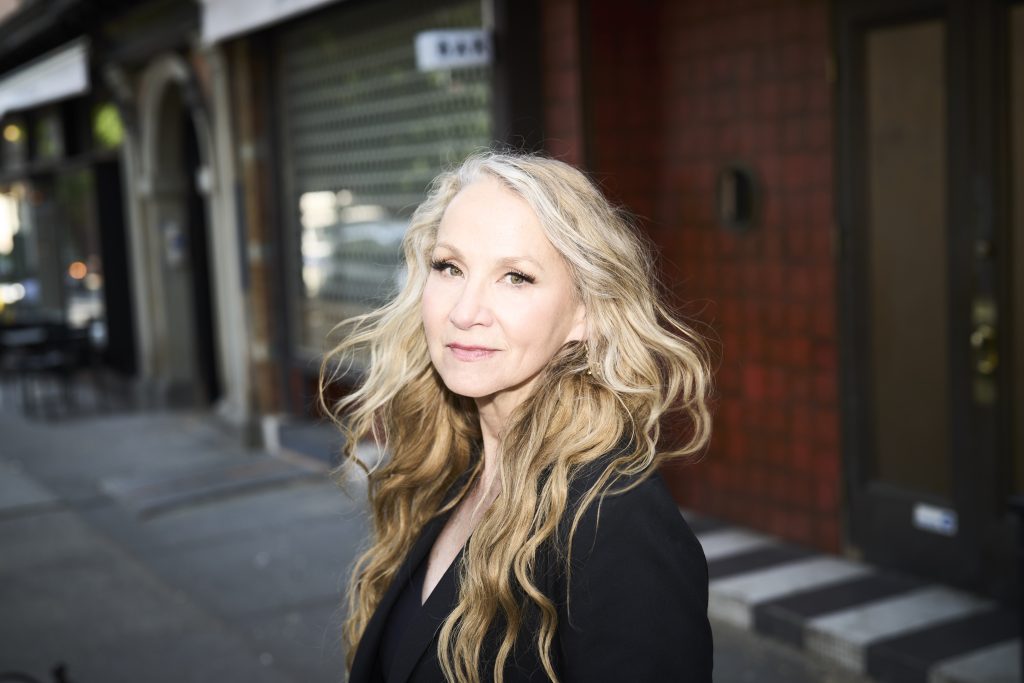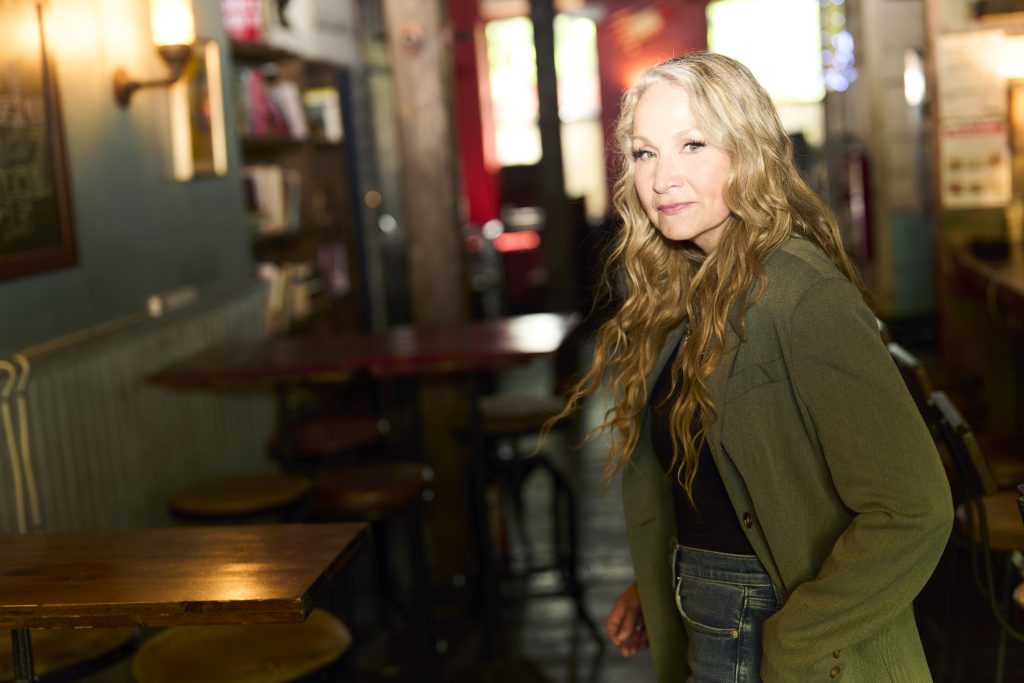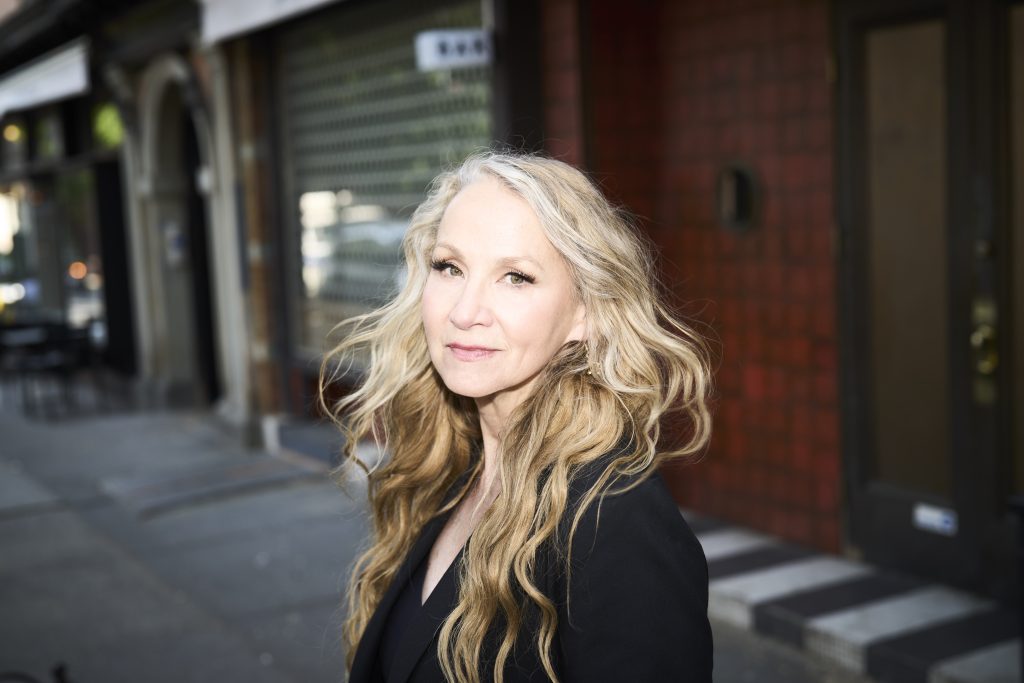
Joan Osborne
Biography
Joan Osborne
Nobody Owns You
“This is the most personal record I’ve ever made,” multi-Grammy-nominated singer-songwriter Joan Osborne says about her ravishing new studio album, Nobody Owns You. “These songs come from my feelings about people in my family, about people who I care about, and just what to do with this time that we have on the earth. They come from a raw emotional place. And I’m asking myself that question: What am I here for?“ The result is a masterful collection of twelve contemplative songs offering hope and solace, while exploring Osborne’s own unique journey from small-town Kentucky to around the world.
Read More
The powerful album’s deeply melodic songcraft, including some co-writes with producer Ben Rice (Valerie June; Norah Jones), serves up a rich Americana sound. Her sumptuous alto and poetic lyrics are underpinned by rootsy textures, ranging from Rice’s banjo guitar, to Cindy Cashdollar’s lap steel, to Dave Sherman’s piano and Hammond organ, to Jack Petruzzelli’s baritone guitar.
Osborne’s first-time collaboration with Rice turned out to be a match made in heaven. “It was a really fresh, new situation at his studio in Brooklyn,” says Osborne, who’s self-produced her most recent albums, including the critically acclaimed Trouble & Strife (2020). “He brought in people he’s worked with before and I brought in mine, like Cindy and Jack, and it was kind of a love fest.”
Before recording, Osborne and Rice began co-writing, and realized they were each experiencing tough times. “2022 was rough for me,” confirms Osborne, whose last release, Radio Waves, anthologized select performances broadcast on national airwaves since 1995. “I’d just gotten out of a 15-year relationship, which is hard, and my daughter’s getting ready to leave home for college, and my 92-year-old mother started exhibiting signs of Alzheimer’s. There was so much change going on in my life, and I felt so vulnerable. Then Ben lost his father during the process of making the record. We kept saying to each other, ‘Thank God we have this work to focus on.’ There’s a way to take grief and turn it into something beautiful.”
The genesis of the cowritten album-opener, “I Should’ve Danced More,” was an appraisal, explains Osborne, whose multiplatinum debut, Relish, was released in 1995: “I turned 60 last year and was thinking about my life – what’s behind me and what’s ahead, and that line popped into my head. It’s that feeling of ‘what would you tell your younger self.’” Rice adds a mélange of sonic touches, including guitars and Mellotron, along with backing vocals, supplemented by the voice of Rachel Yamagata; she and Catherine Russell contribute harmonies throughout much of the album. “What voices!” Osborne exudes. “Their tone and texture and grit and depth…Catherine and Rachel’s voices stick together and create this one super voice!”
Another Rice-Osborne cowrite, “Secret Wine,” is a gorgeous prayer for her mother’s future passage. “If there’s anything positive about dementia,” Osborne offers, “it’s that when people lose parts of themselves, it can strip away unessential things and leave behind a lightness and brightness. ‘Secret Wine’ started as a poem, and I sent it to Ben and he put it to music, then I added some ideas and lyrics, and it all came together quickly. We really clicked. I was in a place where I wanted to say what I meant, and he was very open to that direct emotional expression.”
Emotion abounds on Nobody Owns You: Mother-daughter love is the theme of Osborne’s exquisite “The Smallest Trees,” with the sounds of birds coexisting beautifully with Greg Wieczorek’s glockenspiel, Petruzzelli’s Omnichord, Rice’s Mellotron, and Cashdollar’s lap steel. The catchy “Child of God” was inspired by one of her mother’s sayings, with Osborne’s witty wordplay influenced by countless hours listening to Dylan songs. Jill Sobule joins Osborne, Russell, and Yamagata on the singalong chorus.
The potent title track, “Nobody Owns You,” was intended as a message to her own daughter: “There’s still this narrative in our culture that young girls and women are supposed to be ‘perfect,’ and that leaves them open to being manipulated by people who do not have their best interest at heart,” says Osborne. “I thought, ‘I can put this in a song,’ and when she’s ready to hear it, it will be there waiting for her. If all you get from this record is reading that title, you will have gotten something – just that message.” The blues-rockin’ Farfisa-fueled “Woman’s Work” furthers Osborne’s feminist viewpoint, based on the complicated reality of being a working mother. Much of her own life, over the past three decades, has been spent on the road, as detailed in the bittersweet acoustic ballad, “So Many Airports.” The ebullient “Tower of Joy” embraces an otherworldly transcendence she experienced along the way with a former paramour.
As she did so eloquently on Trouble & Strife, Osborne continues to focus on sociopolitical concerns. Anger motivated her to write her love letter to “Great American Cities” – a rebuttal of right-wing TV pundits falsely maligning America’s urban centers. Her horror over the epidemic of mass shootings manifests in the haunting “Time of the Gun,” her devastating lyrics punctuated by Rice’s banjo guitar, Cashdollar’s weeping steel, and Yamagata-Russell’s sorrowful refrains. The bluesy “Dig a Little Ditch,” with its “push the devil in” line, was inspired by the past (old work songs) and the present. “We’re beset with devils of all kinds right now,” says Osborne, who urges us to “get out our shovels and do what we can. I like the image of using your physical labor to trick this devil, put him in a ditch, and cover him up. It’s a way to think about the work we need to be doing.”
Osborne beautifully summarizes her own essential work in the hymnlike “Lifeline.” Her emotive vocals, complemented by those of Sobule, Yamagata, and Russell, call on us to “plant a seed into the ground/and feed it with the light you’ve found.” “When I wrote the song,” she recalls, “I was thinking about music and the power it has, and understanding that at times in my life music has been the real lifeline for me. I hope that people might experience the same thing from hearing songs I’ve put out into the world.” With the extraordinary Nobody Owns You, Joan Osborne has done exactly that.
Read Less
Learn More
Press Releases
Photography
Click thumbnail to open high-res image then right click to save.

